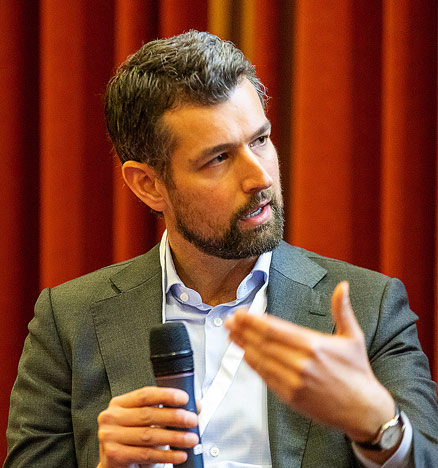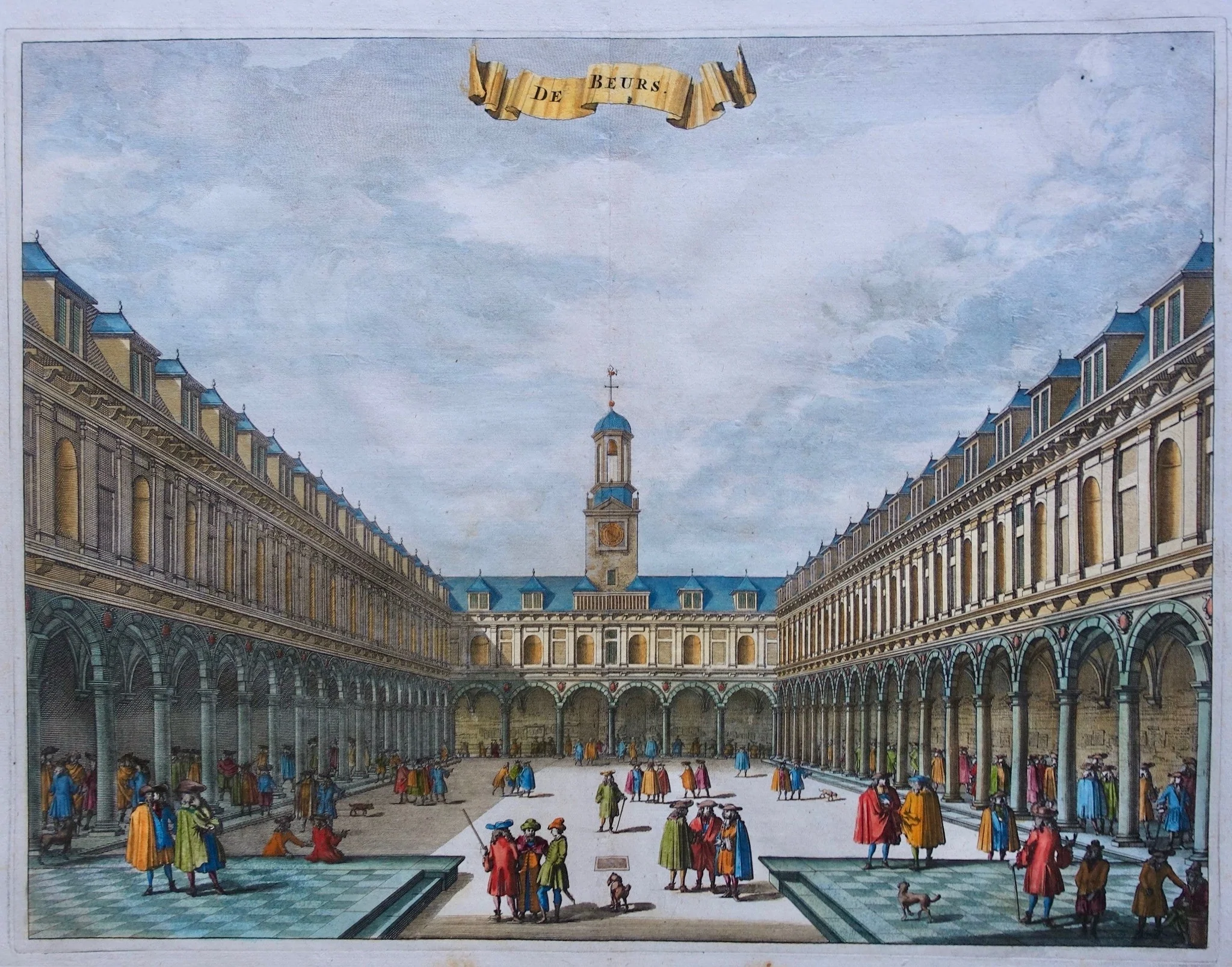The stock exchange is of fundamental importance to the economy. The stock exchange offers companies and governments access to capital for funding and growth and small and large investors the opportunity to invest and spread risk.
Proprietary trading firms who trade for their own account and risk are crucial for the proper functioning of the stock exchange, are supervised by the AFM and DNB and are united in the Dutch Trade Association of Proprietary Traders (APT). Their role and responsibilities have been laid down in law.
The APT was established in 2003 as a successor to the Association of Market Makers at the European Options Exchange, which was founded in 1984. The Articles of Association can be found here and the House Rules here. For more information about membership, please contact with the APT. APT is registered in the Transparancy Register of the EU with number 750843838123-86.
APT currently has 23 members. Almost all members are located in Amsterdam, around Beursplein 5, the Zuidas and close to other financial-technology companies. All Members are represented in the Member Council. Chairman of the Member Coucil is Jurjen Kruisinga (Cross Options).
- Algorithmic Trading Group
- All Options
- Barak Capital Market Making
- Criterion Arbitrage & Trading
- Cross Options
- DRW
- Eagle Seven
- Five Rings
- Flow Traders
- Gelber Group
- IMC
- Jane Street
- Jump Trading
- Mako
- Market Wizards
- Maven Derivatives
- Nino Options
- Optiver
- Radix Trading
- Tower Research
- Utr8 Group
- WEBB Traders
- 323 Trading
The board of APT consists of:
- Willem Sprenkeler
(Chair) - Ebbo de Vries
(Criterion) - Niels Lemmers
(Flow Traders)
- Merel van Dijk
(DRW) - Rik Ghijsels
(IMC)
- Diederik Dorst
(All Options) - Tarek Tranberg
(Optiver)

Matthijs Pars is director of the APT and responsible for the association, advocacy in The Hague and Brussels and the association’s spokesman towards media, regulators and other stakeholders. On behalf of APT, Matthijs is a member of the Advisory panel of Representative Organizations of the AFM, the ZBO Accountability Panel of DNB and the Board of the DSI Foundation . Matthijs Pars coordinates the activities of APT’s Working Groups.
The APT cannot function without the commitment and active involvement of its members. Various Working Groups are active within APT, including on the topics Market Data, Market Structure, Tax, Public Relations and Public Affairs and AFM/DNB Fees.
A market maker provides liquidity on the capital markets by issuing prices at all times at which investors can trade and by being available to buy and sell financial instruments on an ongoing basis. Thus institutional and private investors can depend on the ability to trade at any time, at the most recent prices. Dutch market makers do this in thousands of different shares, options, futures and other instruments on stock exchanges around the world, such as on the Amsterdam Stock Exchange Euronext, the London Stock Exchange, and the exchanges of Milan, Hong Kong and Sydney.

The first stock exchange in the world: : the Koopmansbeurs (1611), where the first market makers were active
This tradition goes back more than 400 years, when the brothers Raphoen were always willing to buy and sell shares, options and futures on the first stock exchange in the world, the Koopmansbeurs (1611) on the Rokin in Amsterdam. The brothers made money by doing a lot of transactions, not by gains resulting from price changes or from dividends. They also bought less marketable smaller shares and combined these into common larger shares, to benefit of shareholders and the stock market. See: Lodewijk Petram, De Bakermat van de beurs. How modern stock trading started in seventeenth-century Amsterdam (2011).
Fast forward in time: in 1978 the first European Options Exchange (EOE) was opened in Amsterdam, based on American example. The EOE started in the Beurs van Berlage and moved into its own building on the Rokin in 1987. Option trading quickly acquired a permanent place on the Dutch capital market. This new exchange gave new impetus to market making, with firms such Cross Options (1979), Optiver (1986) and IMC (1989) opening their doors. In those years, market making was done by means of 'open outcry' on the trading floor. Traders stood on their own 'tile' in the 'crowd' and often only traded in a few funds.
In 2002, Mayor Cohen of Amsterdam ended open outcry trading by sounding the traditional gong on the exchange floor. From then on, all funds were only traded electronically. And since then, strong competition between trading firms has led to technological advancement and algorithmic trading gaining importance. Since Brexit, many Anglo-Saxon trading firms have settled in Amsterdam and have given new impetus to Amsterdam as a centre of market making and proprietary trading.
Dutch trading firms are leading on major stock exchanges around the world. And thanks to Dutch trading firms, trading in securities is more efficient, transparent and affordable than ever before.

